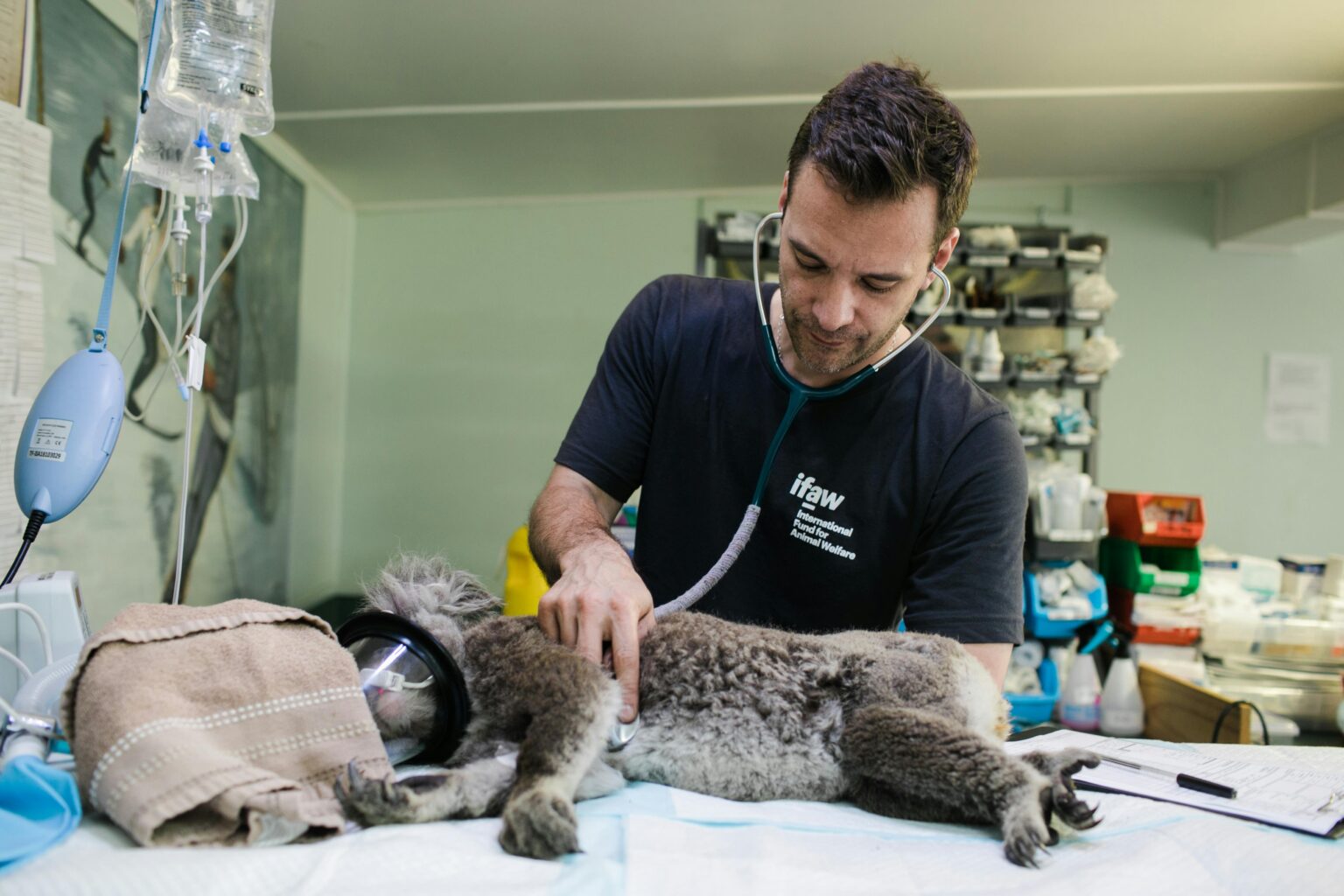The veterinary profession, often seen as a calling for those who love animals, hides a darker reality that rarely makes headlines. Behind the compassion and dedication lies immense pressure, moral dilemmas, and emotional exhaustion that can weigh heavily on even the most talented professionals. In a tragic turn of events, a highly respected UK veterinarian’s life came to an abrupt end, leaving his family, colleagues, and community grappling with unanswered questions. What led to this devastating outcome? And how do the unique challenges of this field play a role in such heartbreaking incidents?
The Ethical Dilemmas of Veterinary Work
Veterinarians often navigate complex ethical landscapes, balancing the well-being of animals with the expectations and decisions of pet owners. This balancing act can lead to significant moral distress, especially when veterinarians are asked to perform actions that conflict with their professional and personal ethics.
A poignant example is the case of Dr. John Ellis, a UK veterinarian who tragically took his own life. Dr. Ellis was deeply troubled by situations where affluent clients, arriving in “brand new cars,” would request the euthanasia of their pets rather than opting for treatments. He expressed to his mother the frustration of dealing with such clients, contrasting them with less affluent owners who, despite financial constraints, would “do anything to save their animals,” often seeking help too late for effective intervention.
This ethical conflict is not isolated. A 2018 study found that 77% of veterinarians experienced moderate to severe stress due to ethical dilemmas, with 70% reporting minimal training in resolving these conflicts.
Common challenges include “economic euthanasia,” where financial limitations lead owners to opt for euthanasia over treatment, placing veterinarians in morally precarious positions.
The emotional toll of these dilemmas is profound. Veterinarians may experience “moral distress” when they are unable to act according to their ethical beliefs, leading to job dissatisfaction and psychological strain.
In Dr. Ellis’s case, the cumulative effect of these ethical challenges, compounded by personal struggles, culminated in a tragic outcome.
The Personal Struggles He Faced

Beyond the ethical challenges in his professional life, Dr. John Ellis grappled with significant personal struggles that compounded his distress. For the two years leading up to his death, Dr. Ellis was involved in an extramarital affair, unbeknownst to his partner of 12 years, Ashley James. This clandestine relationship added layers of guilt and emotional turmoil, contributing to what was described during the inquest as a “double life.”
The weight of maintaining secrecy, coupled with the fear of potential repercussions if his infidelity were discovered, likely exacerbated his mental health struggles. Such personal conflicts can intensify feelings of isolation and anxiety, particularly when combined with professional stressors.
In addition to relationship issues, Dr. Ellis faced financial pressures. He reportedly had trouble sleeping and would sometimes sleep in his car when on call, rather than go home and have to drive to the clinic in an emergency. His mother noted that all these factors “completely built up and he was finding it difficult.”
The intersection of personal and professional stressors can have a profound impact on mental health. A study published in the Irish Veterinary Journal highlights that veterinarians are at a higher risk of experiencing depression, anxiety, stress, and suicidal ideations compared to the general population.
The combination of ethical dilemmas at work and unresolved personal issues can create a cumulative burden, leading to severe psychological distress.
Systemic Issues in the Veterinary Industry

The tragic case of Dr. John Ellis underscores systemic challenges within the veterinary profession, particularly concerning mental health and access to euthanasia drugs.
Veterinarians face significant mental health challenges, with studies indicating elevated levels of anxiety, depression, and suicidal ideation compared to the general population. A report by Vetlife highlights that veterinarians experience higher levels of psychological distress, including anxiety and depressive symptoms.
The demanding nature of veterinary work, coupled with ethical dilemmas and client interactions, contributes to this mental health burden. A scoping review in the Irish Veterinary Journal emphasizes the prevalence of work-related stress among veterinarians, noting a high risk of suicide, burnout, and depression.
Dr. Ellis’s ability to obtain euthanasia drugs without adequate oversight highlights regulatory gaps. The Misuse of Drugs Regulations 2001 categorize controlled substances into schedules with varying levels of control. Schedule 3 drugs, often used for euthanasia, are subject to fewer controls, lacking mandatory safe custody requirements.
This regulatory framework can inadvertently allow easy access to potentially lethal substances. A recent coroner’s report expressed concern over the lack of adequate controls preventing misuse of euthanasia drugs by veterinary professionals.
Lessons and Calls for Action
The tragic loss of Dr. John Ellis serves as a poignant reminder of the multifaceted challenges faced by veterinary professionals. To prevent similar tragedies, it is imperative to address both the systemic issues within the industry and the personal struggles that individuals may face.
Enhancing Mental Health Support
Recognizing the high prevalence of mental health challenges among veterinarians, several initiatives have been established to provide support:
- Mind Matters Initiative (MMI): Launched by the Royal College of Veterinary Surgeons (RCVS), MMI aims to improve the mental health and well-being of veterinary teams through training, resources, and research.
- Vetlife Health Support: Offers confidential support to veterinary professionals dealing with mental health issues, providing access to mental health professionals who understand the unique challenges of the veterinary field.
- Not One More Vet (NOMV): A global initiative dedicated to providing support, resources, and education to veterinary professionals, aiming to reduce the stigma associated with mental health issues in the profession.
Implementing Stricter Controls on Euthanasia Drugs
The ease of access to euthanasia drugs, as highlighted in Dr. Ellis’s case, necessitates a review of current protocols:
- Regulatory Review: The Misuse of Drugs Regulations 2001 categorize controlled substances into schedules with varying levels of control. Schedule 3 drugs, often used for euthanasia, are subject to fewer controls, lacking mandatory safe custody requirements.
- Practice Protocols: Veterinary practices are encouraged to implement stricter internal controls, such as requiring dual authorization for the withdrawal of euthanasia drugs and maintaining detailed logs to monitor access.
Promoting Ethical Decision-Making and Communication
To alleviate the moral distress associated with ethical dilemmas in veterinary practice:
- Training Programs: Incorporate modules on ethical decision-making and client communication into veterinary education and continuing professional development to better prepare professionals for challenging situations.
- Support Networks: Establish peer support groups within practices to provide a platform for discussing ethical concerns and sharing experiences, fostering a culture of openness and mutual support.
Encouraging Work-Life Balance
Addressing the demanding nature of veterinary work is crucial:
- Flexible Scheduling: Implement work schedules that allow for adequate rest and personal time, reducing the risk of burnout.
- Resource Allocation: Ensure that veterinary teams are adequately staffed and resourced to manage workloads effectively, preventing excessive stress and fatigue.
Honoring a Life Through Reform
The story of Dr. John Ellis is a heartbreaking example of the toll that personal and professional pressures can take on even the most dedicated individuals. His tragic passing serves as a stark reminder of the challenges that veterinary professionals face daily—challenges that extend beyond the clinical setting into the deeply personal realm of ethics, mental health, and systemic flaws.
Moving forward, it is crucial to address the gaps that contributed to this loss. The veterinary profession must prioritize mental health support, implement stricter controls on potentially dangerous substances, and foster a culture that encourages open dialogue about the moral and emotional complexities of the field. Equally, as a society, we must show greater compassion for the people dedicating their lives to caring for animals, recognizing the emotional labor their work entails.
Dr. Ellis’s family and colleagues have expressed a desire for his death to inspire change. As they so poignantly stated, “No one should feel that they are alone.” By acting on the lessons from this tragedy, we can honor his memory and ensure that future veterinarians have the support they need to navigate the challenges of their vital work. Through systemic reform and collective compassion, we can build a better, more understanding future for those in this essential profession.


